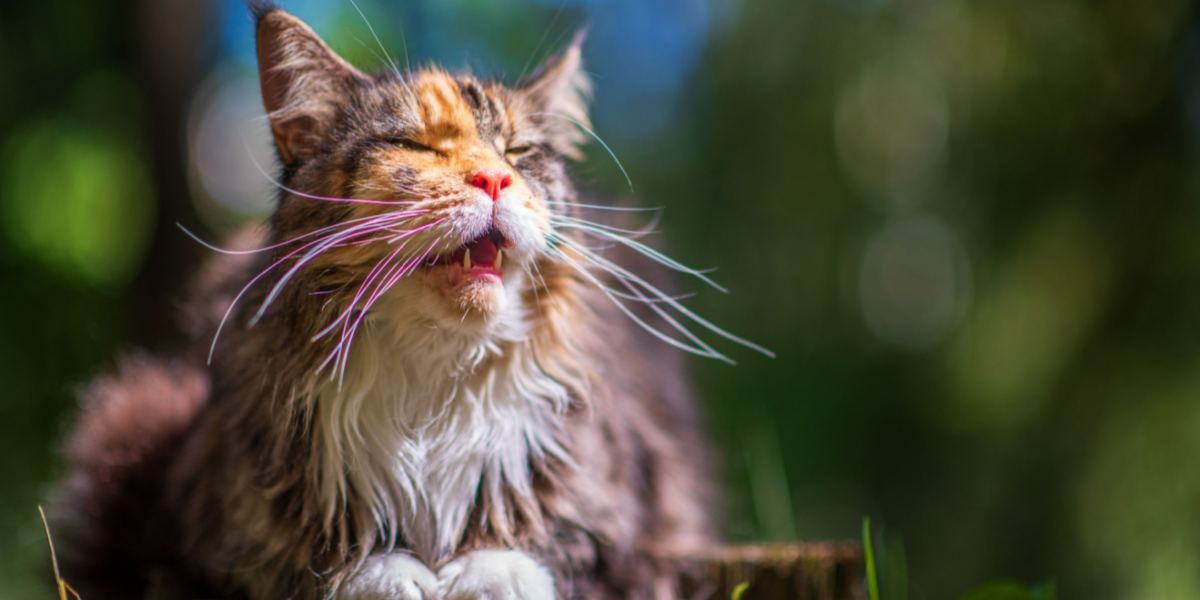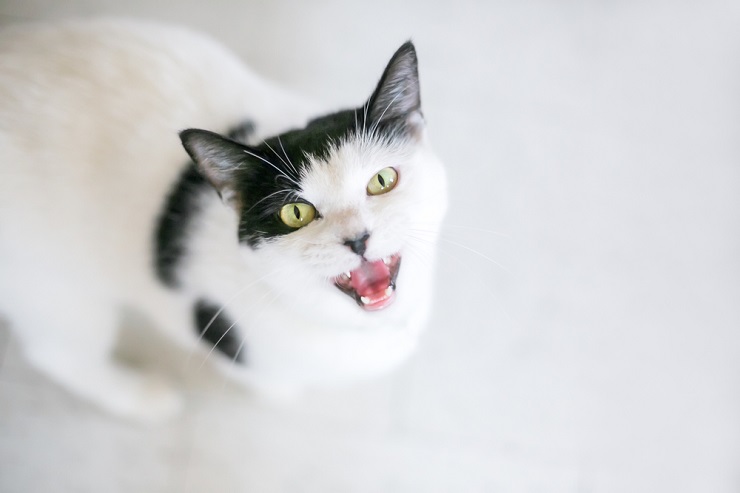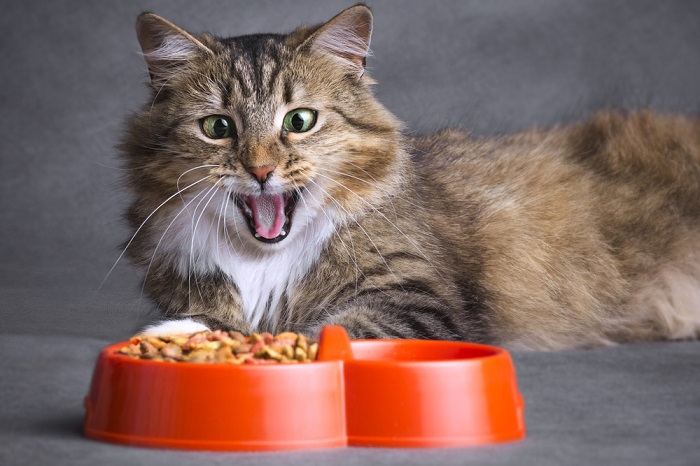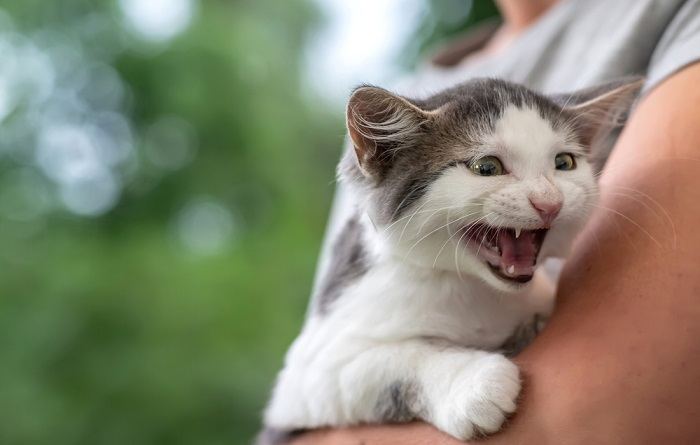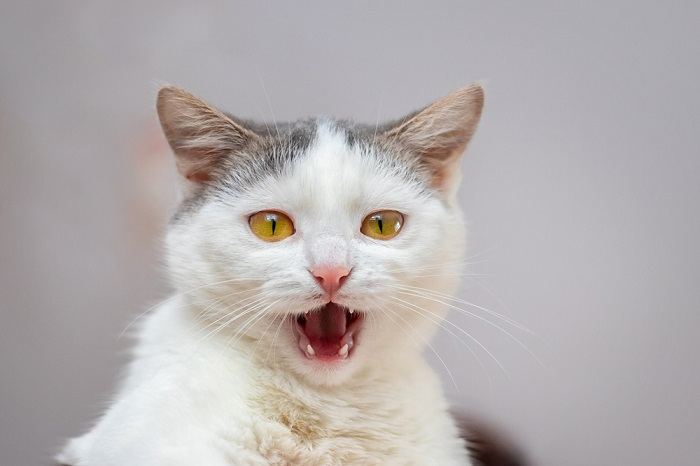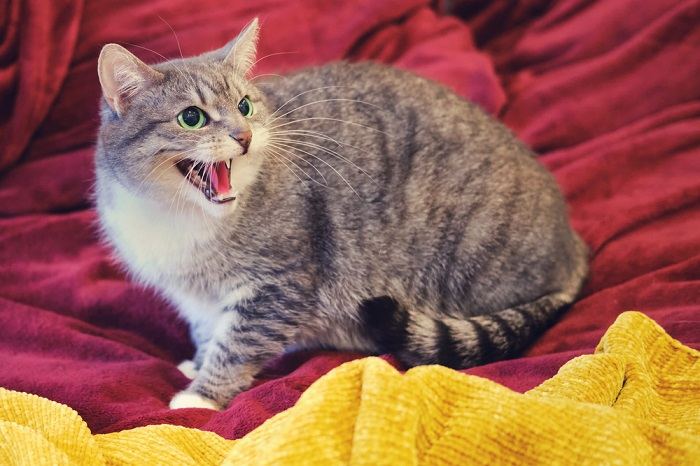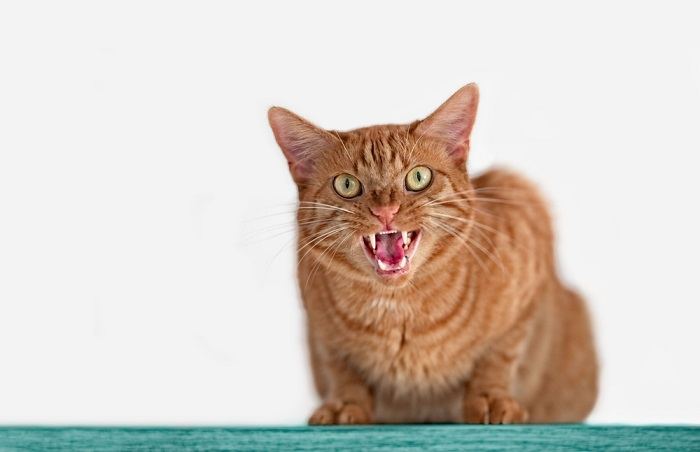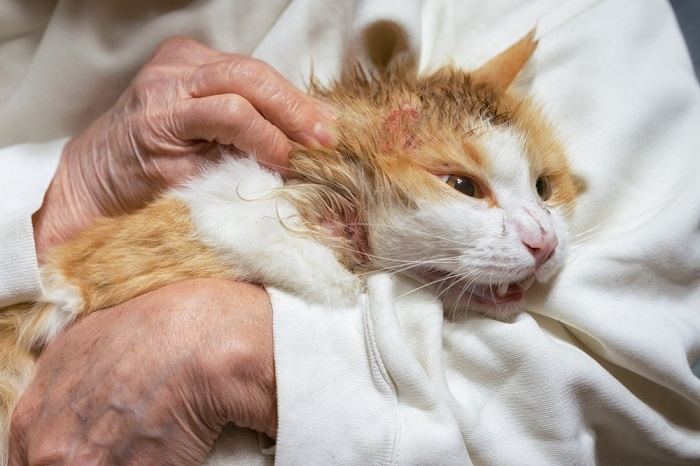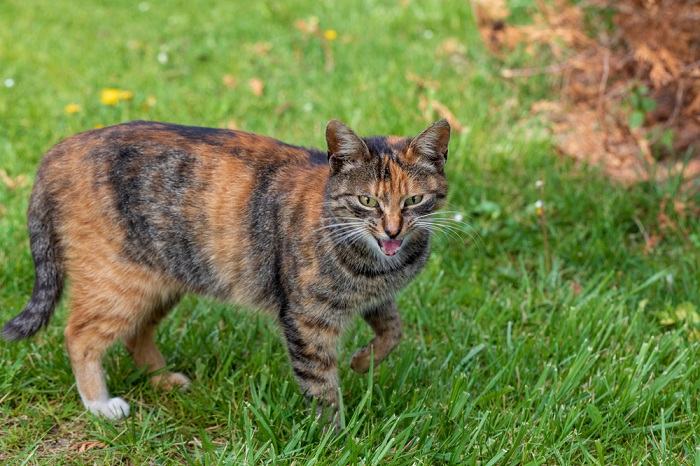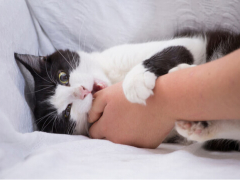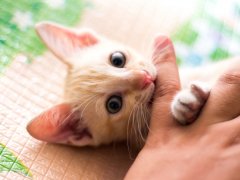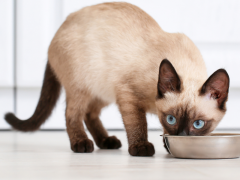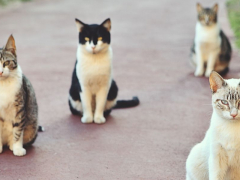As dedicated pet parents, we become accustomed to many of the oddities of cat behavior. However, if your cat likes a yowl in the middle of the night, you might be wondering why this behavior occurs and if you can do anything to stop it!
There are many reasons why you might hear your cat yowling, from hormones to attention seeking through to a medical issue, so it’s important to learn about the common reasons behind excessive vocalization, and how you can help your cat.
Why Do Cats Yowl?
Cat communication is subtle, and changes as they age. Cats use vocalizations such as meowing, hissing, and growling to communicate, but they also use facial expressions and body language. Kittens may meow to their mothers if they want them to pay attention to their needs such as hunger or cold.
As cats age, they tend to move into other forms of vocalizations. Adult cats mostly only meow and purr to their owners, and instead mostly use body language, posture, and other sounds such as hissing and growling to communicate to other cats. The yowl of a cat is a rather unpleasant sound and can indicate multiple things.
Here are the most common reasons for excessive Yowling.
1. Hunger
Cats can be greedy creatures and are also well-attuned to the timing of their mealtime. Some cats meow when hungry. If you hear your cat yowl, first check the food bowl and the water bowl. It could just be your delightful companion saying ‘feed me!’ as loudly as they can!
Also Read: 10 Reasons Why Cats Put Toys In Food Or Water Bowls
How To Help:
Investing in an automatic feeder may save your ears in the future, or at least it might become the target of the noise rather than you!
2. Attention Seeking
Cats know just how to get you to pay attention to them – a loud yowl usually does the trick!
If your cat is bored, wants a cuddle or some playtime, or just needs some company, they may use that loud meow to get their way. Indoor cats are especially prone to boredom and tend to realize fairly quickly that their owner is the best source of entertainment.
Also Read: What To Do If Your Cat Chews On Everything
How To Help:
Providing plenty of cat toys, scratching posts and cat trees can help, and set aside some time regularly to play and bond with your cat. A tired cat is much less likely to be a noisy cat!
Plenty of activity in the daytime should help your cat sleep well at night.
3. Hormones
Believe it or not, that strange and horrible cat yowling noise that wakes you in the middle of the night may be all down to your cat’s idea of romance. If you have a female cat, she will yowl when in heat.
A male cat will caterwaul in return if they hear a female cat yowling. This is typical in adult cats who have not undergone a neuter procedure and is heard more at night than in the daytime.
How To Help:
Although this is normal cat behavior, the excessive vocalization can be easily fixed by spaying your female cat or having your male cat neutered.
Also Read: How Much Does It Cost Spay or Neuter A Cat?
4. Breed
Some cats meow more than others, and the Siamese is a cat breed well known for their chattiness. Excessive meowing can be perfectly normal behavior in this quirky breed and can even be a sign of wellness.
How To Help:
Tricky! If you are the proud owner of one of those gorgeous but loud Siamese cats, you may just have to accept that is one of the quirks of owning one of these highly individual characters.
Also Read: 12 Smartest Cat Breeds – Most Intelligent Cat Rankings
5. Stress
Cats can show anxiety and stress in different ways, some more subtle than others. Excessive vocalization can be a sign that your cat is having difficulty with something – perhaps a change in their environment, a new pet, or a territorial dispute with a neighboring cat.
Also Read: Do Cats Like Music?
How To Help:
Try and identify the source of anxiety – have there been any changes to your cat’s environment lately?
Reassure your feline friend by giving them plenty of play and touch, play music or radio for them when you aren’t there, and ensure they have all their needs met for warmth, food, and water.
If your cat yowls at other animals or people they see out of the window, consider using blinds or curtains to block the view. Synthetic pheromone sprays can help to calm your cat if they are experiencing mild stress.
Also Read: Best Cat Window Seat & Perches
6. Age
As our beloved cats age, their brain function (cognition) can decline. The ASPCA found that over 55% of older cats (over 11 years) showed some signs of cognitive dysfunction.
This can present in different ways: general confusion, not eating well, reversal of sleep cycles (waking a lot at night), and changes to the owner-cat bond, but excessive vocalization is a common symptom.
This form of cat yowling is often very loud, as our senior cats are also becoming deaf, and often occurs at night.
Also Read: 7 Common Cat Vocalizations And What They Mean
How To Help:
If you have an elderly cat who has started yowling, especially in the middle of the night, this may be worth a check-up with a veterinarian to check for signs of cognitive dysfunction. There are medications and supplements which may be able to help.
Some night lights around the house may help if your elderly pet is becoming anxious in the dark. Remove any obstacles that they might bump into, check they are warm and fed before bed, and consider allowing them to sleep near you for reassurance.
7. Health Problems
Your cat may have a medical issue if they are yowling a lot. Any illness which causes pain, hunger, or thirst can precipitate excessive meowing, and some diseases such as hyperthyroidism (an overactive thyroid) and kidney disease are well known for causing an unpleasant caterwauling.
How To Help:
Wellness should always be our top priority, so a visit to your veterinarian for a check-up may be in order to rule out any health problems.
Conclusion
Cats yowl for a multitude of reasons, some of which are more easily fixed than others. Never punish a cat for excessive meowing, as they may be trying to communicate something important.
Your veterinarian might well be able to help if your cat is yowling due to a hormonal, medical, or age-induced reason, and you can provide plenty of reassurance at home for those more anxious yowlers.
Also Read: How To Have A Better Relationship With Your Cat
Frequently Asked Questions
How do I stop my cat from yowling?
This depends on the cause of the excessive noise. A young, entire cat may well be yowling due to hormones, which can be solved by neutering. Older cats may be suffering from a medical issue and require veterinary attention. Some cats are yowling to communicate that they need something, such as food or attention and will stop when that is provided.
How do you get a cat to shut up?
If your cat is being excessively vocal, do not punish them. They are trying to communicate that they need something. If your cat is young, they may well be calling for a mate. Older cats may be hungry, anxious, or unwell. Make sure they have food, water, a warm bed, and some entertainment. If they are still noisy, a trip to the veterinarian may be needed.
Why does my cat scream?
Cats can loudly vocalize if they are in pain or distress. Young, unneutered cats can also loudly yowl at night when they are hormonal and looking to mate.
